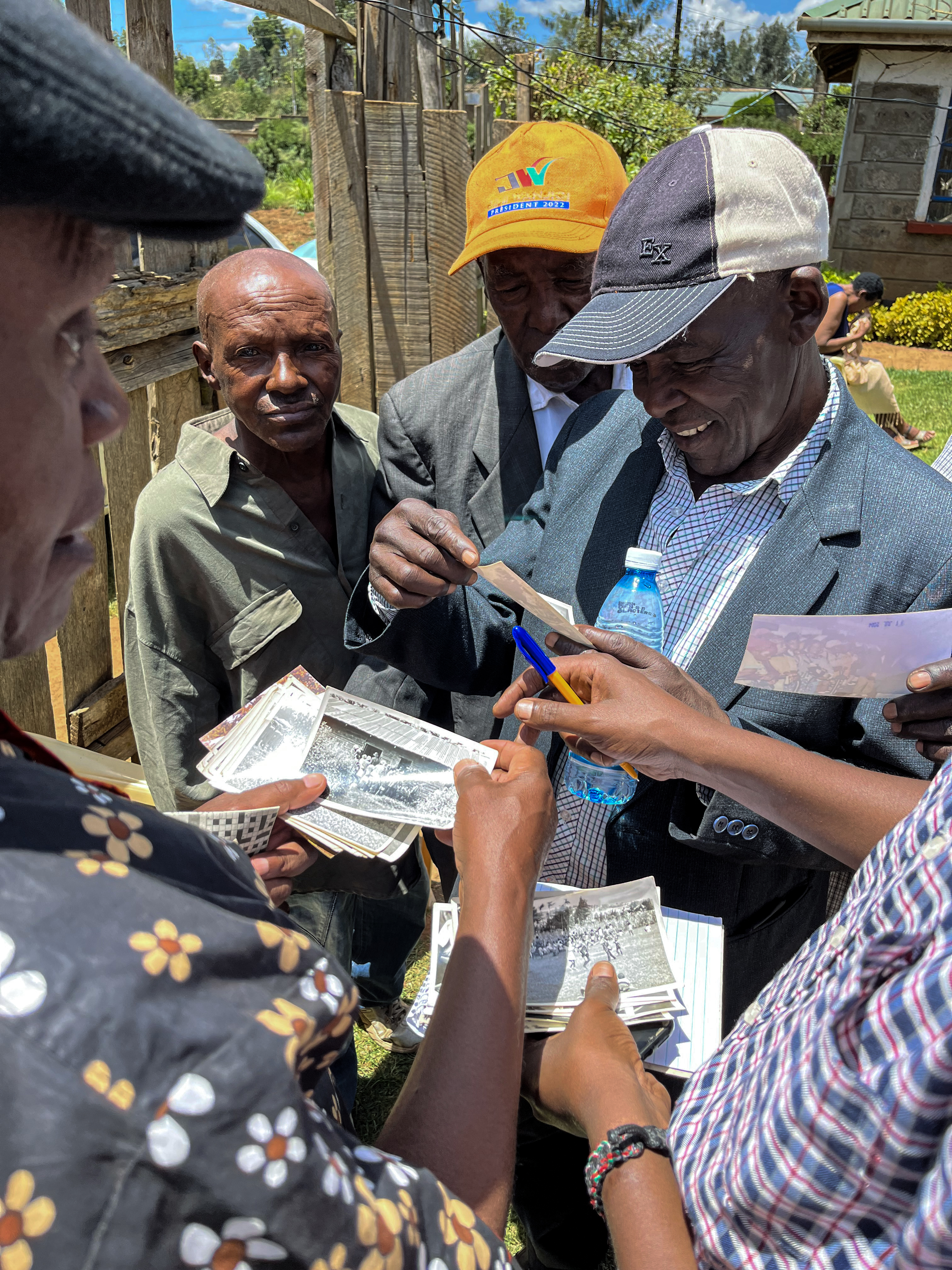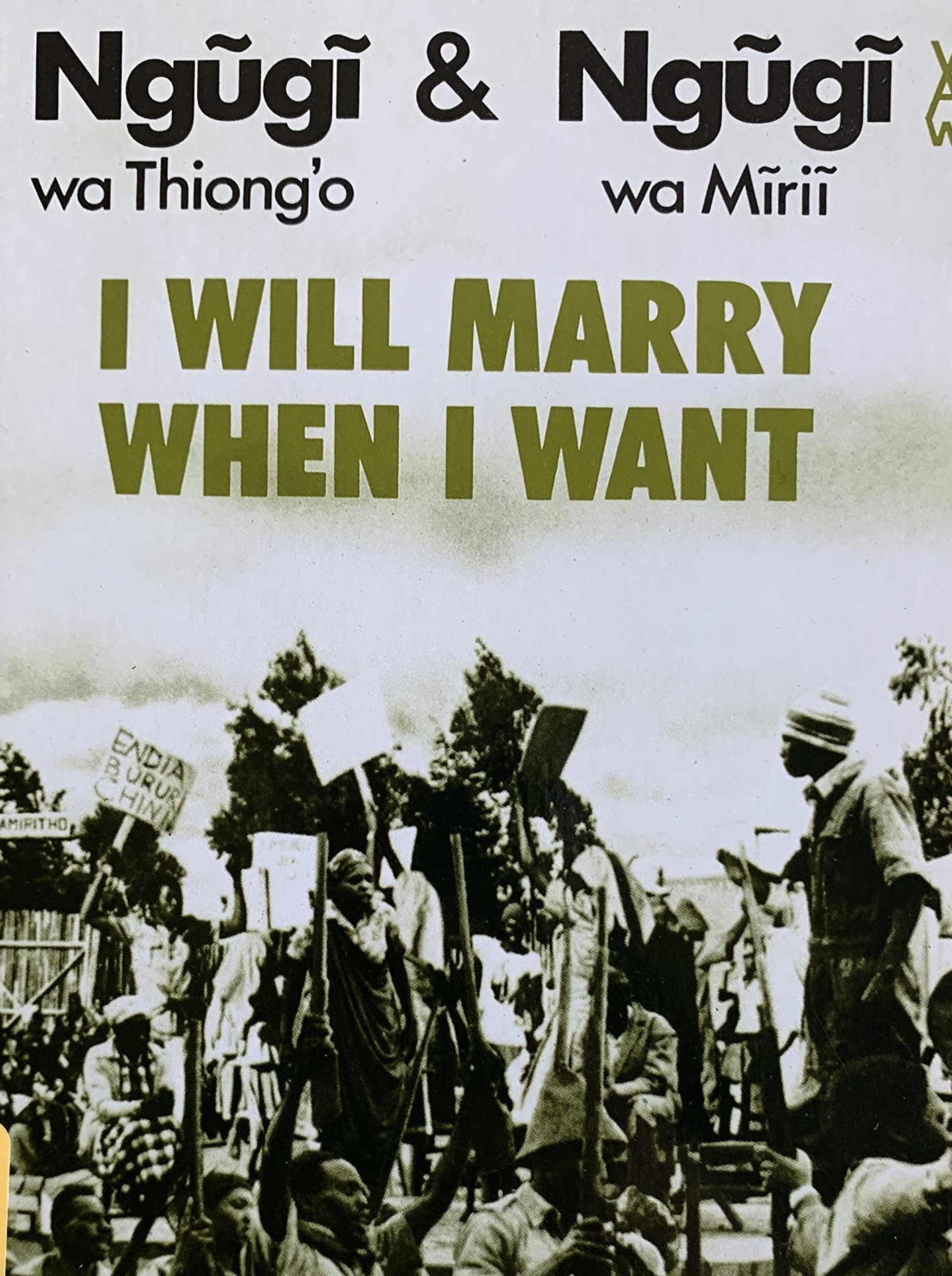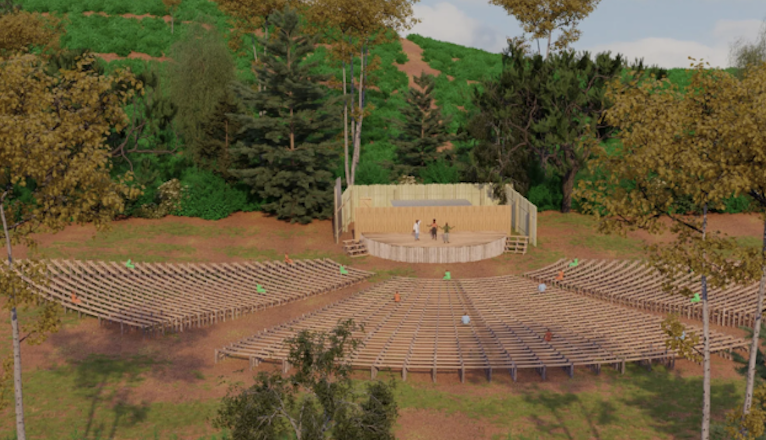The Kamĩrĩĩthũ open-air theatre is a world-famous initiative in African decolonization. In 1976, Kenyan workers and peasants came together to build an open-air theater and stage a play that soon attracted huge audiences from across the country and beyond. Written by Ngũgĩ wa Thiong’o and Ngũgĩ wa Mirii, the play “Ngaahika Ndeenda” (“I Will Marry When I Want”) became a powerful means by which the community of Kamĩrĩĩthũ confronted land dispossession, industrial pollution, gender disparity, and (neo)colonial injustice. Soon after its establishment, however, the Kenyan government imprisoned Ngũgĩ wa Thiong’o and demolished the collectively built and managed open-air theatre.
Kamĩrĩĩthũ Afterlives is a collaborative project to commemorate and reactivate this heritage and to support struggles and debates about social and environmental justice in Kenya today. Led by Kenny Cupers (University of Basel) and Makau Kitata (University of Nairobi), it brings together the original performers with community stakeholders, institutional partners, and performance-based initiatives for social and environmental justice. The project is ongoing and consists of four interdependent elements: an open-access archive with the voices of the original actors and others involved, a digital model of the original open-air theatre, a documentary film, and a future reactivation of performing arts in Kamĩrĩĩthũ.
Community meeting and video screening event, 20 May 2022 (Photo: Gitonga Mwangi)
Kamĩrĩĩthũ Afterlives was launched in 2020 by Kenny Cupers as part of the Swiss-government-funded research project Governing through Design. This framework facilitated an interdisciplinary collaboration with African literature and performance studies scholar Makau Kitata. Our aim as researchers is to better understand decolonization in the built environment through the lens of Kamĩrĩĩthũ’s community theater. As we embarked on this project, our requests for interviews were met with a pressing question that fundamentally shaped the course of our project:
“We have been interviewed by many academics over the years.
They come and take our story and then never return.
How will you be any different?”
Kamĩrĩĩthũ actor James Githiga Muaura
We believe our project is different because it is rooted in ethics of collaboration and dialogue, following the spirit of Kamirithu theatre itself and the pedagogical orientations of the Critical Urbanisms program. Starting from an awareness of epistemic injustice, we aim to build spaces for reflection and empowerment through creative and transformative research approaches.
In the course of this project to date, we have had the privilege to meet the inspiring people behind the theatre and other members of the Kamĩrĩĩthũ community. Together with filmmaker Gitonga Mwangi, we organized group meetings and then conducted individual interviews with the original actors, their families, and the other stakeholders in the community. These voices, which form the basis for long-term collaboration, have now been made public thanks to the translation and video editing work of Joe-Collins Karuku from our partner organization Twaweza Communications.
Kamĩrĩĩthũ Afterlives mobilizes the heritage of Kamĩrĩĩthũ theatre in debates and initiatives for a more just future. Together with our collaborators, we do so by remembering, archiving, translating, democratizing, reactivating, and reimagining Kamĩrĩĩthũ, and by supporting conversations about and initiatives for social and environmental justice in Kenya and beyond.

First community meeting, in preparation of the documentary interviews, 8 April 2022 (Photo: Gitonga Mwangi)
︎︎
Partners
Kamĩrĩĩthũ theatre group:
David Njaramba Kaguura, Geoffrey Mbothu Wachira, George Kabonyi, James Githiga Muaura, Joseph Mwangi Kariuki, Lucy Wangui Ng’ang’a, Maria Njeri Waweru, Moses Njiriri Mburu, Raphael Karanja Mwaniki, Salome Njeri Njane, Sam Mbure, Wangari Hinga, and Margaret Wairimu Ngũgĩ
African Digital Heritage
GoDown Arts Centre
Social Justice Traveling Theatre
Twaweza Communications
Kamĩrĩĩthũ Polytechnic
︎︎
Partners
Kamĩrĩĩthũ theatre group:
David Njaramba Kaguura, Geoffrey Mbothu Wachira, George Kabonyi, James Githiga Muaura, Joseph Mwangi Kariuki, Lucy Wangui Ng’ang’a, Maria Njeri Waweru, Moses Njiriri Mburu, Raphael Karanja Mwaniki, Salome Njeri Njane, Sam Mbure, Wangari Hinga, and Margaret Wairimu Ngũgĩ
African Digital Heritage
GoDown Arts Centre
Social Justice Traveling Theatre
Twaweza Communications
Kamĩrĩĩthũ Polytechnic
We are open to working with additional partners.
Please contact Kenny Cupers and Makau Kitata.
Kamĩrĩĩthũ Afterlives is a non-profit initiative. Research for this project is funded by the Swiss National Science Foundation. The oral and visual archive is funded by the Graham Foundation for Advanced Studies in the Fine Arts.
© 2024
Design: Silvia Balzan, Dinamo Fonts
Voices

History

Film

Model
![]()
Future

